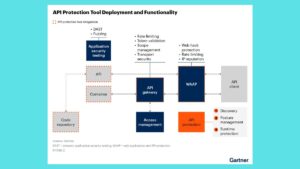The Future of HRTech: Redefining Human Resources in a Digital World

As organizations continue to adapt to the rapidly changing business landscape, the role of technology in human resources (HR) is becoming increasingly pivotal. HRTech—the intersection of human resources and technology—is evolving at a breakneck pace, driven by the need for efficiency, enhanced employee experiences, and data-driven decision-making. This blog explores the future of HRTech, highlighting emerging trends, innovations, and the impact they will have on the HR landscape.
1. The Evolution of HRTech
HRTech has come a long way from basic payroll systems to sophisticated platforms that encompass every aspect of HR management. Today’s HR technologies offer comprehensive solutions that integrate recruitment, onboarding, performance management, employee engagement, and analytics into a single platform. As we look to the future, HRTech will continue to evolve, leveraging advancements in artificial intelligence (AI), machine learning, data analytics, and cloud computing to reshape HR practices.
2. Key Trends Shaping the Future of HRTech
a. Artificial Intelligence and Automation
AI and automation are set to revolutionize HRTech by streamlining processes and improving decision-making. AI-powered tools will automate repetitive tasks such as candidate screening, scheduling interviews, and managing employee records, freeing HR professionals to focus on strategic initiatives. Moreover, AI can analyze vast amounts of data to provide insights into employee performance, engagement levels, and potential turnover, enabling HR leaders to make informed decisions.
b. Employee Experience and Engagement
The future of HRTech will prioritize employee experience, recognizing that a satisfied workforce is essential for organizational success. HR platforms will increasingly focus on enhancing the employee journey, offering personalized experiences that cater to individual needs and preferences. Features such as self-service portals, personalized learning and development plans, and real-time feedback mechanisms will empower employees to take charge of their careers and engagement levels.
c. Remote Work Solutions
The shift to remote work has fundamentally changed the way organizations operate. HRTech will play a crucial role in managing remote teams, fostering collaboration, and maintaining employee engagement. Future HR platforms will provide tools for virtual onboarding, performance tracking, and communication, ensuring that remote employees feel connected and supported. Features like virtual team-building activities and employee wellness programs will also help organizations maintain a strong company culture, regardless of physical location.
d. Data Analytics and Predictive Insights
Data-driven decision-making is becoming a cornerstone of effective HR management. The future of HRTech will leverage advanced analytics to provide actionable insights into workforce dynamics. Predictive analytics will enable HR leaders to identify trends, forecast turnover, and assess employee sentiment, allowing organizations to proactively address potential issues. By harnessing the power of data, organizations can make informed decisions that enhance workforce planning and optimize talent management strategies.
e. Diversity, Equity, and Inclusion (DEI)
As organizations strive to create diverse and inclusive workplaces, HRTech will play a pivotal role in promoting DEI initiatives. Future HR platforms will include tools to eliminate bias in recruitment, facilitate fair performance evaluations, and track diversity metrics. By leveraging technology to foster an inclusive culture, organizations can create environments where all employees feel valued and empowered to contribute.
3. The Rise of Gig Economy and Flexible Workforce
The gig economy is reshaping the traditional employment model, with more individuals opting for freelance, contract, or part-time work. HRTech will need to adapt to this shift by providing solutions that accommodate a flexible workforce. Future HR platforms will include features for managing gig workers, tracking project-based performance, and ensuring compliance with labor regulations. By embracing the gig economy, organizations can tap into a diverse talent pool and enhance their agility in responding to changing market demands.
4. Cybersecurity and Data Privacy
As HRTech continues to evolve, the importance of cybersecurity and data privacy will grow. With sensitive employee information stored in HR systems, organizations must prioritize robust security measures to protect against cyber threats. Future HRTech solutions will need to comply with data protection regulations and implement encryption, access controls, and regular security audits to safeguard employee data and maintain trust.
5. Collaboration Between Humans and Machines
The future of HRTech is not about replacing humans but enhancing their capabilities through technology. While automation will streamline processes, the human element will remain crucial in building relationships, fostering company culture, and driving employee engagement. HR professionals will need to develop new skills to effectively collaborate with AI and leverage technology to create a more efficient and effective HR function.
Conclusion
The future of HRTech is bright, with transformative technologies poised to redefine how organizations manage their most valuable asset: their people. By embracing AI, data analytics, and a focus on employee experience, organizations can create agile and responsive HR functions that drive business success.
As we move forward, HR leaders must stay ahead of the curve, continuously exploring new technologies and trends that can enhance HR practices. The integration of technology in HR is not just about efficiency; it’s about creating a workplace where employees feel valued, engaged, and empowered to contribute to their fullest potential.
In this ever-evolving landscape, the future of HRTech will be shaped by innovation, collaboration, and a commitment to fostering inclusive and thriving work environments. As organizations navigate the challenges and opportunities ahead, HRTech will play a pivotal role in shaping the workforce of tomorrow.






